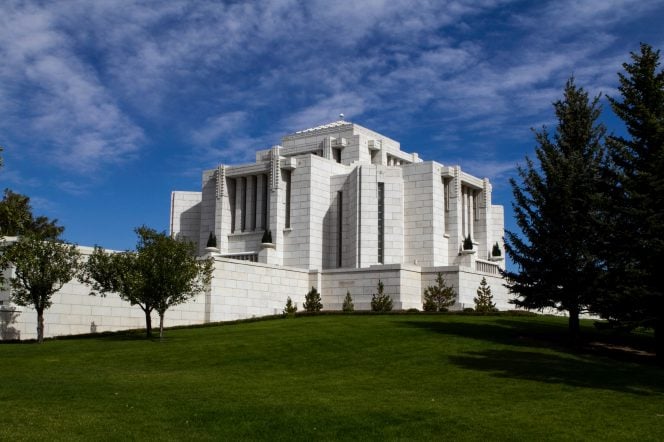
From Fiona Givens and Terryl Givens, The Christ Who Heals: How God Restored the Truth that Saves Us (Salt Lake City: Deseret Book, 2017), 17-18:
An early casualty of the confluence of two factors — Greek philosophy that disparaged materiality and Jewish monotheism that embraced only one divine being — was the absorption of Christ the divine into Trinitarian models. Some Church Fathers, like Justin Martyr, saw the divinity of Christ as clear evidence that there were two Gods worshipped by Christians. The God who appeared to Abraham and Moses, he wrote, was “another God and Lord.”* In this way, he and other Christians understood — in terms remarkably familiar to Latter-day Saints — that “the name ‘god’ need not be restricted to the supreme deity. Jesus . . . might be described as a god, but in such a way that one could speak of two gods.”**
Opponents of early Christianity as well recognized that Christians were worshipping two deities. It was difficult to refute the charge of the pagan Celsus, who fumed that “if the Christians worshipped only one God they might have reason on their side. But as a matter of fact they worship a man who appeared only recently. They do not consider what they are doing a breach of monotheism, rather they think it perfectly consistent to worship the great God and to worship his servant as God.”***
This conception of two separate Gods was clearly the norm. In fact, scholars recognize “how deeply the conception of a plurality of divine Persons was imprinted on the apostolic tradition and the popular faith.”**** Origen stated the case simply: “We worship, then, the Father of truth, and the Son who is the truth. And they are two separate persons, but one in unity and concord of mind.”*****
* Justin Martyr, Dialogue with Trypho LVI, in The Ante-Nicene Fathers, ed. Alexander Roberts and James Donaldson (Grand Rapids, MI: Eerdmans, 1977), 1:223.
** Denis Minns, Irenaeus (London: T. & T. Clark, 2010), 58.
*** Celsus, On the True Doctrine, cited in Roger E. Olson, The Story of Christian Theology (Downers Grove, IL: InterVarsity Press, 1999), 34.
**** J. N. D. Kelly, Early Christian Doctrines (San Francisco: HarperSan Francisco, 1978), 88.
***** Origen, Contra Celsum viii.12, in The Early Christian Fathers, ed. and trans. Henry Bettenson (Oxford: Oxford University Press, 1956), 243.
[St. Justin Martyr (b. AD 100, Flavia Neapolis, Samaria; d. AD 165, Rome)]
[Clement of Alexandria (b. ca. AD 150, Athens; d. ca. 215, Jerusalem)]
[Origen (b. ca. AD 184, probably Alexandria, Egypt; d. ca. AD 253, probably Tyre, Phoenicia)]










